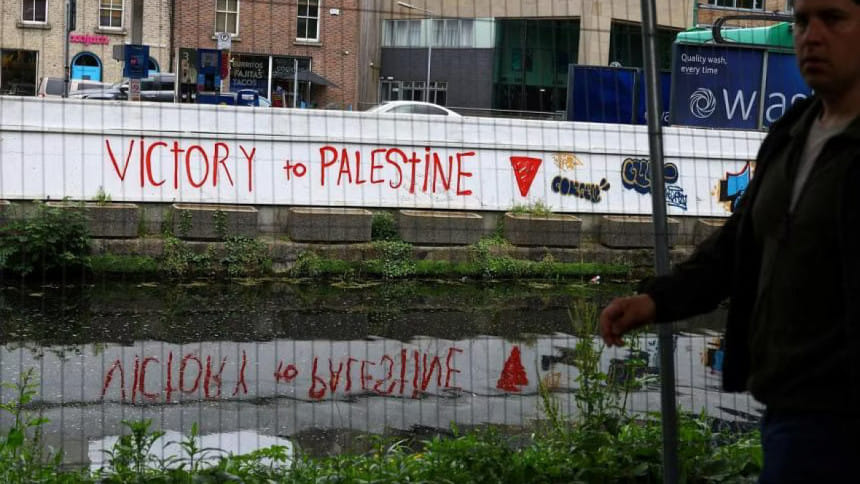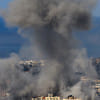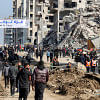What does the recognition of European nations mean for Palestine?

Palestine has carved out its place in the public consciousness and discourse over the last few months or weeks like never before. Since the initial onslaught of October 7, 2023, both proponents and opponents of a ceasefire resolution have been overtly vocal, compelling some form of political action or statement from world leaders. Within this course of events, three new European countries—Ireland, Norway and Spain—have recognised the Palestinian State on May 28, followed by Slovenia, on June 4.
While some have applauded the recognition from these three European nations, it is important to analyse the significance of the announcement. At this point of an ongoing genocide, the implications of this recognition on Palestinian statehood and the talks of ceasefire and the end of Israeli occupation in Palestine demand a closer look.
This latest series of recognitions comes at a time when Israeli forces in Gaza, since October 7, have killed 46,400 Palestinians, more than half of them women and children. The number includes at least 147 journalists, 493 health workers and 196 UN staff. More than 82,600 people have sustained injuries, many of whom are left critically wounded. At least 37 Palestinians have died due to malnutrition and dehydration, 30 of whom were children. More than 60 percent of residential units and 80 percent of commercial facilities have been damaged by Israeli airstrikes.
Perhaps what triggered this response from the three European nations is the sheer monstrosity of assaults launched by Israel on civilians in northern Gaza and Rafah. Even hospitals were not spared from the airstrikes—with only 14 hospitals left in the entire perimeter of Gaza, that too functioning partially.
Another crucial aspect has been the student protests that started with Columbia University in the US and spread to the entire country, followed by multiple campuses in Europe and Australia. Over the last few weeks, over 1,600 students and faculty members from different universities in the US have been detained for protesting and demanding an end to Israel's nearly seven-month-long assault on Gaza and for firms to divest. The suppression of pro-Palestine sentiments through police brutality and administrative actions have made it clear to many that the US government doesn't protect the freedom of speech and expression for counternarratives, only the ones they deem less "radical". The widespread protests are expected to impact the upcoming presidential elections as well, with the new generation of voters being unsure of the Biden administration over its complicity in the ongoing genocide through its relentless support for Israel. The pro-Palestine student movement has succeeded in at least one thing despite the suppression of pro-Palestine voices—it has made Palestine come to the forefront of public discourse. There is no denying the absolute brutality unleashed upon Palestinian lives anymore. The world cannot just pretend to not see it.
The recognition came as a welcome move for many pro-Palestine voices. Palestinian diplomats now have additional clout in any negotiation or summit amid the drive by the international community to grant Palestine more recognition. It also strengthens Palestine's position and activities in institutions like the International Criminal Court. Additionally, as an autonomous state, the recognition permits Palestine to sign bilateral accords. The fact that the recognition reflects European frustration with the Israeli government's refusal to comply with international humanitarian laws is also a pressure point for the European Union to follow suit with Ireland, Norway, Spain and Slovenia.
However, the recognition, in practical terms, is only a symbolic move at a time when symbolic moves from world leaders are barely enough to stop the ongoing genocide. Spain, Ireland, Norway and Slovenia did not recognise Palestine as an existing state, just a possible one, with the pre-1967 borders with East Jerusalem as its capital.
Israel has also responded quickly to the latest recognition. It has recalled its ambassadors to each of the three states and stated that the recent recognition is a "reward for terrorism". Israel's foreign minister Israel Katz severed diplomatic ties with the Spanish consulate in Israel, which also worked as a connection between Spain and Palestine, further barring any Spanish aid from entering the Palestinian territory. Israel has supposedly further weakened its position on the world stage with this move as it has further isolated itself diplomatically on the issue.
However, the recognition from the three European countries also requires an examination of their existing ties to Israel. Apart from diplomatic relations, all four share bilateral trade relations with Israel. All of these countries that recently recognised Palestine have business ties with Israel, and they have not put any sanctions on the state of Israel for the ongoing genocide. Norway's exports to Israel have grown in value over time, reaching about 2 billion Norwegian krone (NOK) in 2019. As of December 31, 2019, Norway's sovereign wealth fund had invested 1 billion NOK in fixed income and 11.9 billion NOK in shares (84 firms) in Israel. These represent the largest Middle East investments made by the fund.
In November, Spain exported $1 million worth of ammunition to the Israeli regime, which by then had already slaughtered thousands in Gaza. Ireland's exports of restricted "dual-use" items with military uses to Israel grew nearly 800 percent in 2023, from $11.8 million to more than $75 million. The Irish government continues to sell these items to Israel. These contradictory stances and actions would only make sense if these European governments recognised Palestine as a symbolic, political move to gain more popularity among their pro-Palestine voter base. Meanwhile, they get to buy more time and keep avoiding taking concrete actions against Israel. The more approval they get from their people for recognising Palestine, the less pressure they have to deal with for their continued complicity in the genocide through bilateral ties with Israel. It would be interesting to see how these business relations are impacted by these countries recognising Palestine, and how that translates to their commitment to ensuring a permanent ceasefire and ending the Israeli occupation of Palestine. Israel's envoy to Dublin has already issued a warning, saying that Israeli investors in Ireland's IT services industry are concerned and that the crisis in bilateral relations over Ireland's proposal to establish a Palestinian state sends the wrong message about Ireland's status as a tech hub. Slovenia's official recognition of Israel also comes without any sanctions on Israel. Like its neighbours, Slovenia also continues to maintain diplomatic, cultural and economic ties with Israel.
The recent recognition might also have some implications for these countries' ties with the US.
The US was the sole country to use its veto power to quiet the rest of the world, even though 12 UNSC members supported full UN membership for Palestine. How the recognition of Palestine impacts bilateral relations between Ireland, Norway, Spain, and Slovenia, and the US is another crucial aspect that we need to look out for, as it will dictate their ultimate stance on the issue.
The situation has also escalated to the point where a symbolic, political move of merely recognising Palestine as a "possible" state does not have any actual effect when it comes to discussing a permanent ceasefire and ending the Israeli occupation. Maintaining business ties with Israel is contradictory to the global call for divestment from Israel. World leaders need to commit to improving their policies regarding Israel-Palestine, recognise Israel's actions as genocide and move forward from there to ending the siege. Recognition does not cut out the entire world's complicity in a genocide. They need to do more, and they need to do better.
Nahaly Nafisa Khan is a writer and journalist.
Views expressed in this article are the author's own.
Follow The Daily Star Opinion on Facebook for the latest opinions, commentaries and analyses by experts and professionals. To contribute your article or letter to The Daily Star Opinion, see our guidelines for submission.

 For all latest news, follow The Daily Star's Google News channel.
For all latest news, follow The Daily Star's Google News channel. 










Comments